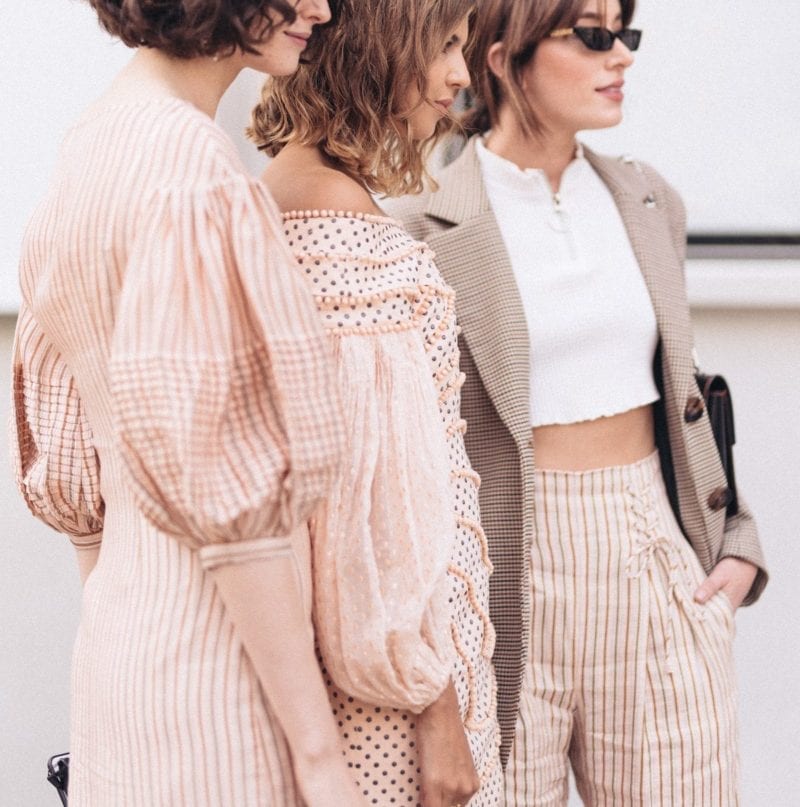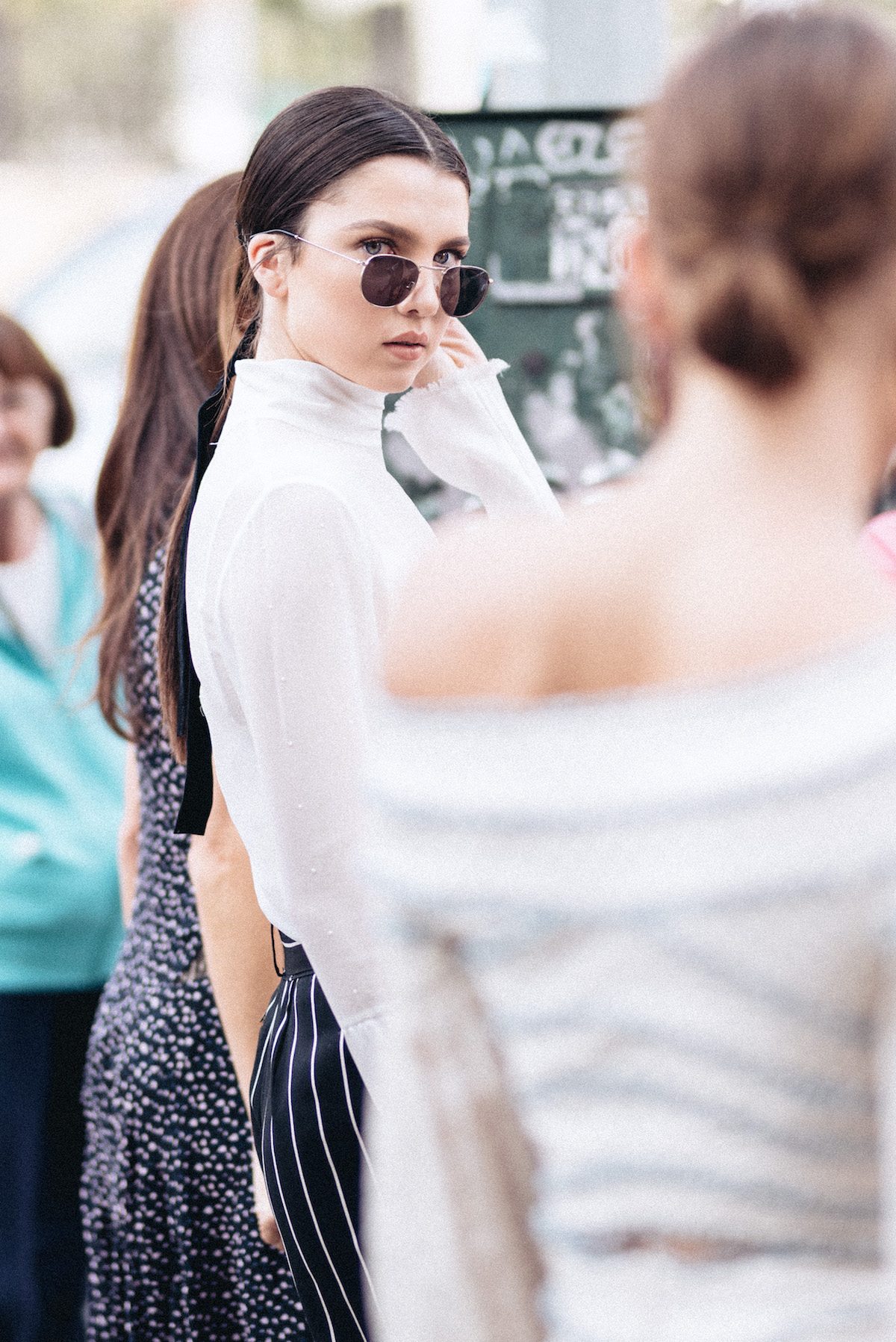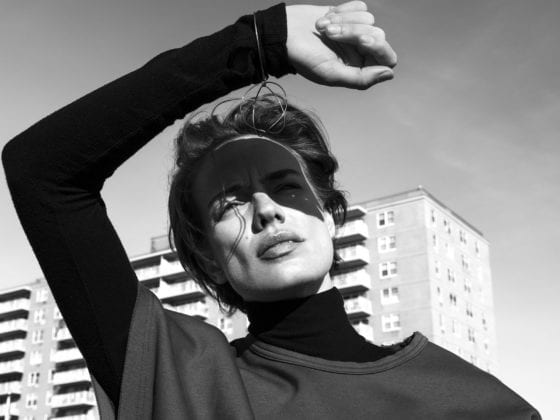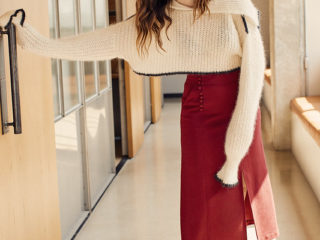I’m not talking about thuggish chicks, raging around town and generally causing chaos. This is a reference to the current trend to hashtag your group of female friends as your #girlgang. Other variants you may have noticed include #girlsquad, #squadgoals and #girltribe.
Thanks to a handful of prominent individuals, the importance of a supportive female group of friends has been re-established and made highly Instagrammable for us — hurray!
This new era in the history of female friendships, with its own way of utilizing social media, is first and foremost something to be celebrated. Any movement that encourages secure, positive relationships amongst women gets every stamp of approval. Far too often these interactions have been plagued by an air of toxicity, and the stereotype of women seeing other women as competitors has existed for far too long.
However, there are a few things about this current hashtag trend that we also need to be aware of.
Any woman will tell you that having a close group of supportive female friends is one of the staples of womanhood; it has been for a long time. Contrary to the stereotype of women seeing each other as competitors rather than collaborators, when you dig a little deeper, female friendships have actually had quite a strong, positive portrayal across literature and other forms of media for centuries.
Reflecting in my lifetime, I’m thinking about literature favorite “Little Women” by Louisa May Alcott, cult favorite “Gilmore Girls” and more recently Lena Dunham’s “Girls.” What stands out for me in these examples is that while the relationships are given a positive narrative, where the characters support each other through the difficult moments they face, they don’t shy away from the often challenging aspects that also accompany these relationships. They argue, disagree and disapprove of each other with aplomb.
The relationships are portrayed realistically, and I think that’s why we love the characters and the narratives so much.
Like many of you reading this, I have a wonderful group of female friends who I’ve known since my early twenties. While it might be easy for me to utilize the current hashtag trend to celebrate the successful moments of these friendships, I don’t think it would be a realistic portrayal of what we have experienced together. Much like Rory, Lorelei and Lane, my female friendships have also included arguments, sometimes bitterness and on occasions even jealousy. I’m willing to bet yours have too.
Any woman will tell you that having a close group of supportive female friends is one of the staples of womanhood; it has been for a long time.
When we create friendship groups that skirt around life’s difficult moments, then friendships become a false representation of what we think friendship should look like. They become about a surface-level reality that fits in with the highlight reel of social media. If your #girlgang is only in it for the Instagram moments, then it’s going to be a very lonely and difficult path to walk.
To reference another cult favorite movie “Mean Girls,” there’s further insight into the pitfalls of pursuing unrealistic ideals of friendship. But I also mention this movie to flag a bigger potential danger of using these hashtags: a risk of exclusivity.
“Mean Girls” focuses on what could be perceived as a #girlgang: a friend group whose members all look a certain way, behave a certain way and have access to a very particular lifestyle. They’re quick to blacklist anyone who criticizes their leader, the same leader who gets to decide who is “in” and who is “out.”
For many, this behavior is disquietly familiar. Anyone who has ever been bullied by a group of females will have seen this type of group before. If you know this feeling, “Mean Girls” probably sticks in your mind for more reasons than Tina Fey’s witty script. Current hashtags akin to #girlgang might also conjure similar feelings, reminding us of negative experiences with exclusive friendship circles when we were back in school.
Anyone who has ever been bullied by a group of females will have seen this type of group before.
It’s easy to dismiss this example as fiction; deliberately created for the purpose of the narrative of the movie, but when you apply the exclusivity lens to real life, and especially to social media, then you start to notice how applicable it is across these hashtags.
If a #girlgang or #squad has an exclusivity clause to it, then it becomes self-serving; only the chosen few are deemed worthy enough of access. It also brings us full circle, back to an unrealistic representation of friendships. For young women who may not have found their #girlgang, seeing these hashtags on social media can lead them to wonder if their own unique relationships don’t meet the current acceptable standards.
There is a huge difference between building an empowered, inclusive, female community — whether at a local level or in an online forum – and an exclusive “you can’t sit with us” mentality.
Of course, it’s also important to add that there are many examples of female groups getting it right.
Hopefully you saw and took part in the #DarlingYou movement recently on Darling’s social media. Now more than ever, inclusivity is so important for our online and offline communities. Even with our well-meant hashtags, we need to think ahead enough to ensure we’re also demonstrating awareness and mindfulness, that we’re creating the positive experiences we want to see and be a part of globally.
Do you think hashtags like #girlgang are exclusive? What do you think a healthy friendship group looks like?
Images via Marshall Cox














2 comments
I think that there are definitely two sides of the hashtag #girlgang.If women are using it with its true emotion towards the friendship of their gang then it is absolutely relevant and adds value to its true meaning.But if the case is similar to that of “Mean Girls”,then it has no value.However,one should not take these ‘trending hashtags’ seriously,as true friendship is not defined by the number of hashtags you use or the pictures you upload on instagram or any other social media platform,but by how well you and your girlfriends stand together with each other in hard and great times 🙂
I completely agree with you 🙂 All valid points – and ones I raise in the piece – however I feel that saying ‘you shouldn’t take this seriously’ is a bit like saying ‘boys will be boys’. For well adjusted adults, we can look at these trends objectively without them having impact on our sense of self. For young women experiencing social isolation, social anxiety or peer vicitimisation, it is much much harder to say ‘don’t take it seriously’.
Reading some of the comments from women on the Instragram post for this piece makes me feel confident that there is an element here we should be taking seriously – especially if we are to better educate our young counterparts about social media and it’s damaging effects (even if it is just silly trending hashtags!)